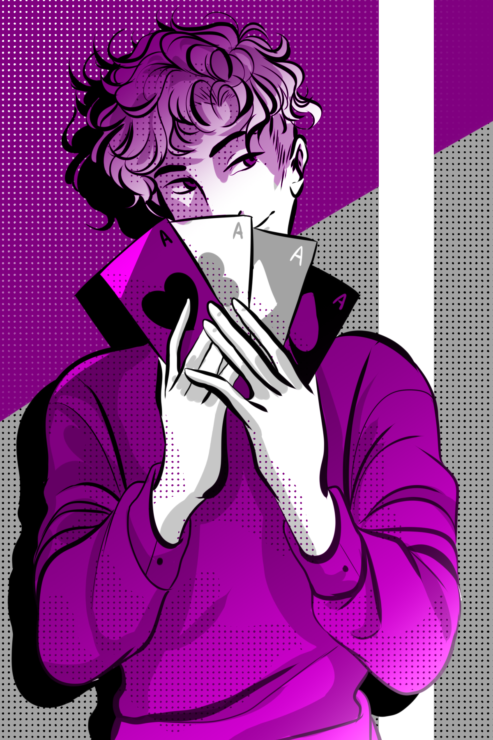The Hidden ‘A’ in LGBTQ2SIA+

Although awareness of the LGBTQ2S+ community is common, asexuality is often left undiscussed and those that identify on the asexual spectrum can feel forgotten.
The asexual spectrum, sometimes abbreviated to aspec, resonates with people who experience no, little, or some sexual attraction. There are many different identities under the asexual or ace spectrum, however, there are three prominent identities: asexual, greyace, or demisexual.
There are relatively few resources and out-of-the-closets role models for asexual people to refer to, leaving many asexual people to reckon with their sexuality on their own.
Ryan* is a second-year student at the University of Victoria who identifies as asexual. He explains the three prominent identities: “You can be completely asexual which is just no sexual attraction to anyone, ever. You can be greyace which means you sometimes feel sexual attraction but it’s very specific and on-and-off situations. It’s not like there’s a recurring trend. For demisexuals, you only start building up sexual attraction after building up strong emotional connections with people.”
Ryan realized he didn’t feel any sexual attraction in high school when he learned about asexuality through a YouTube video.
“It’s like if you were in a box. And you went your whole life believing that the box is the world and then someone comes to the box, opens it up, and says there’s more outside the box. And I’m like, no, I’ve never felt outside the box. That doesn’t make sense to me,” said Ryan.
Two years after finding that initial YouTube video and thinking about living outside the box, Ryan began to identify as ace.
Tanner* a third-year student at UVic, who also identifies as ace, had a similar experience. He knew something made him different from other teens in grade seven but he didn’t realize that he felt romantic attraction but no sexual attraction until high school. In his first year of university, a friend explained to him what asexuality was and it all clicked.
Now, when he encounters people who haven’t heard the term, Tanner says, “ It’s like being hungry. Someone who is celibate is on a diet but an asexual person just doesn’t get hungry.”
Ryan and Tanner requested to remain anonymous because they have only shared their asexual idenitity with close friends and family. They are not publicly out and requested that the Martlet respect that.
Both Ryan and Tanner were relieved when they realized their identity. Tanner explained that it was affirming to know that there was a community that felt the way he did.
Ryan said that he hasn’t seen many major interviews with asexual people.“I think a lot of people view it as boring at times.”
Tanner agrees, “Asexuals are hidden because it’s very easy to pose as straight.”
On his right, middle finger, Tanner wears a black ring called the ace ring. This ring is a symbol of their ace identity and helps the ace community identify one another without having to come out.
It can be hard for people on the aspec to realize their identity as there is a lack of media on asexuality and many false stereotypes about asexual people.
“Ace people aren’t robots. Ace people do masturbate. Ace people can either be interested or disinterested in sex,” said Ryan. “just because you’re ace doesn’t mean you don’t have any [inclination] towards a relationship at all.”
There’s also the stereotype that asexuals don’t fall in love. This is where people need to differentiate between romantic and sexual attractions. Tanner is asexual but heteroromantic. “I look for romantic relationships with lower libido people—really I’m just hoping for a fairy tale fall-in-love relationship,” he said.
When discussing sex it’s easy to forget that some people are just not a part of that world. He said that the rest of “the LGBTQ+ community is highly sex-charged and sex-positive,” and it can be uncomfortable and possibly even dangerous for asexual people to come out.
Tanner and Ryan hope that providing more information on this community and making asexuality mainstream will help strengthen asexual people’s place in the queer community.
*Names have been changed for anonymity.






